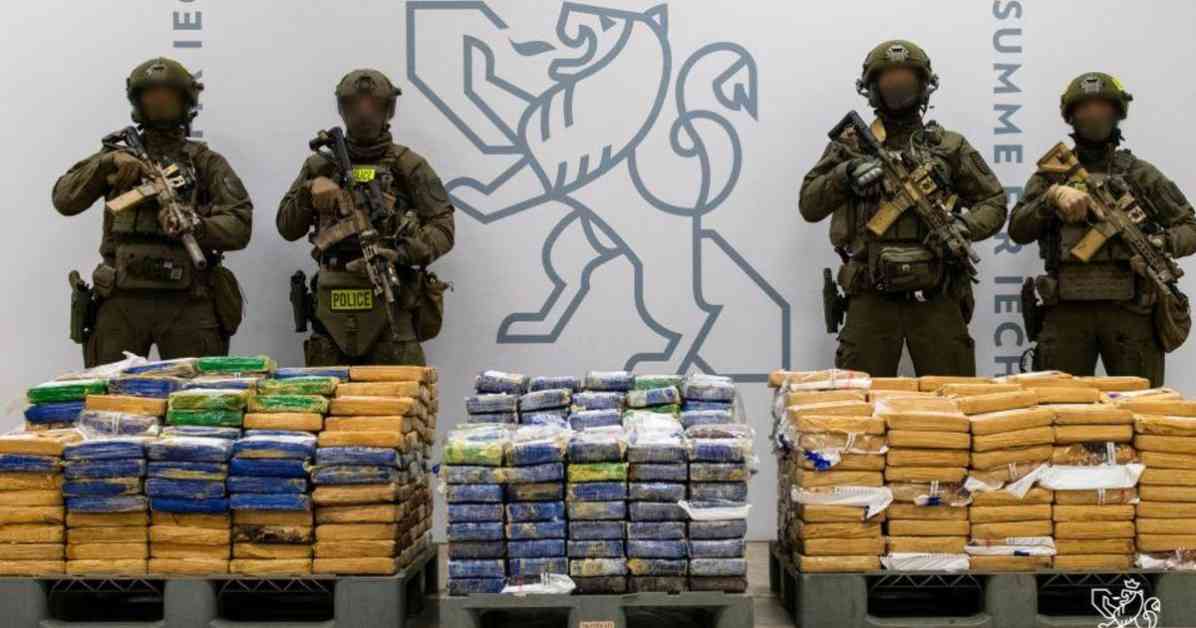Luxembourg Makes Record Cocaine Seizure in Stone Crusher
Luxembourg authorities made a groundbreaking discovery last week when they seized almost a ton of cocaine hidden in a stone crusher of Colombian origin. This significant bust marked a record for the small European state and raised concerns about the prevalence of drug trafficking in the region.
The discovery unfolded when police detained two suspects after finding white powder worth up to 160 million euros inside the machine. The investigation revealed that a little over 889 kilograms of cocaine were concealed within the crusher’s three rollers, sparking a meticulous extraction process that lasted almost a week. Following the extraction, armed officers stood behind dozens of packages of the alleged drugs, emphasizing the severity of the situation.
The machine, which had just been delivered, was intercepted before it could fulfill its illegal purpose. This interception underscores the vigilance of law enforcement in Luxembourg and their commitment to combating drug-related crimes. The investigation is ongoing, with authorities refraining from disclosing further details about the individuals arrested in connection with the seizure.
Reports indicated that the incident took place at a farm in the northern region of Luxembourg, shedding light on the widespread nature of drug trafficking activities in the country. This seizure comes on the heels of a recent study that revealed a significant increase in cocaine use in neighboring France, with 1.1 million people reportedly having tried the illicit drug in 2023. The proximity of Luxembourg to countries like France, Germany, and Belgium highlights the interconnectedness of drug-related issues across Europe.
In November, Belgian authorities made a substantial seizure of nearly five tons of cocaine in shipping containers at Antwerp port, emphasizing the prevalence of drug trafficking activities in the region. Antwerp’s port serves as a key gateway for drugs smuggled from South America to the European market, with frequent busts occurring in and around the facility. The interconnectedness of these drug-related incidents underscores the need for enhanced cross-border cooperation and intelligence sharing among European nations.
The majority of the world’s cocaine is produced in Colombia, where production levels reached a record high in 2023. The significant surge in cocaine production poses a global challenge, with trafficking networks exploiting various routes to transport illicit substances across continents. The recent seizure in Luxembourg serves as a stark reminder of the far-reaching impact of drug trafficking activities and the critical role of law enforcement agencies in curbing the illicit drug trade.
As authorities work tirelessly to dismantle drug trafficking networks and disrupt the flow of illicit substances, the recent seizure in Luxembourg underscores the need for continued vigilance and collaboration among international partners. By addressing the root causes of drug production and trafficking, law enforcement agencies can make significant strides in combating the global drug trade and safeguarding communities from the harmful effects of illicit substances.























